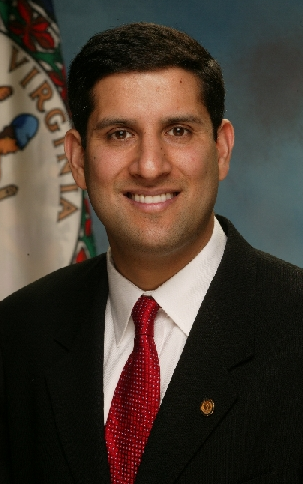The U.S. Government, Innovation and Data We Can Believe In

Aahh. Everything about Barack Obama has seemed so fresh and original. Hey, he's the first [fill in the blank] to be president. And everything he does is refreshingly different from his predecessor, whose most amazing quality was his ability to get elected twice.
(As if that was his doing ...)
(But we digress ...)
So one of the coolest things that our "wired" president promised was to anoint the country's first chief information officer. Whack ourselves over the head: Why had this never been done before?
Dunno. But hope there aren't more days like this in store.
The White House's first chief information officer, Vivek Kundra, wants Americans to have access to more government data to drive innovation and help stimulate the economy, the Associated Press reported at midday. His remarks at a government technology exposition were fairly generic, but he pointed to how the global positioning system originated for national security purposes has led to innovations that make it possible for drivers to find the restaurants they're headed for, without getting lost.
This will be fabulous.
Just imagine what innovation can be spurred if marketers can find out just what disposable income you really do have -- or at least as reported to the IRS. And wouldn't there be a lot more research and development into just what products really interested us, if we let manufacturers listen in to what we said to each other. They would love it if the NSA achieved its objective "to create a database of every call ever made" within the confines of this country. And shared it. Heck, Google probably would jump at the opportunity to offer free transcription of every conversation.
But why stop with tax return information or even voice conversations? Let's really get to know people. Figure out a way to share fingerprints, palm prints, ear lobe shapes, facial characteristics, etc. Surely, some great new grooming and personalized services will come from sharing the FBI's biometric database will ensue. If sharing genomes is okay, as Kundra indicated in his speech, why not?
Don't worry. The best is yet to come. Google already is partnering with the NSA. FBI and CIA to create a cohesive shared-data system called Intellipedia. You know that'll be great, when the data is shared with private entrepreneurs. You may not know what they know about you. But you can be sure it'll be used sensitively and constructively. Oh, and innovatively.
Then again, it could lead to wrong assumptions and interpretations. But at least in the commercial realm, no arrests would result from the sharing of data, right?
So bring on the "technology revolution in government". Right, Mr. Kundra?
